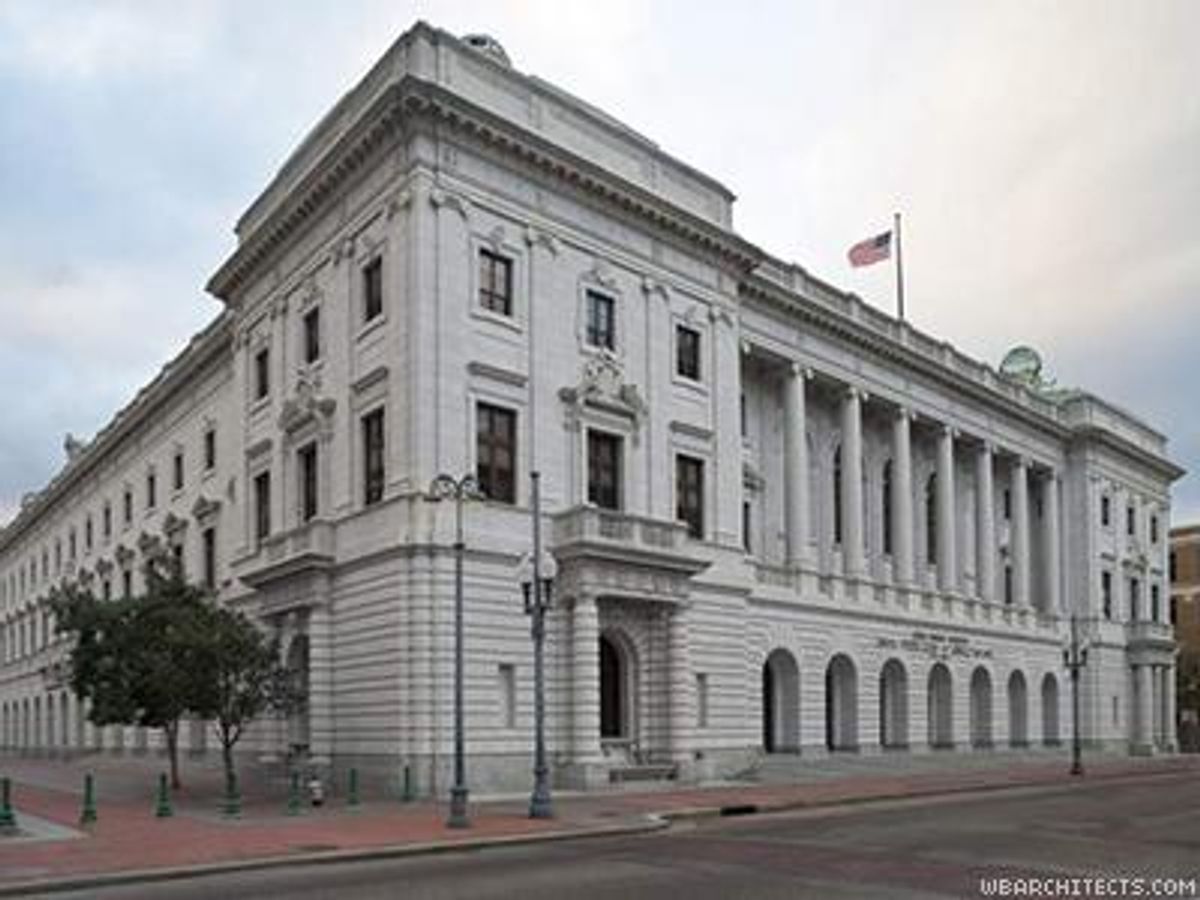The U.S. Court of Appeals for the Fifth Circuit will consider constitutional challenges to same-sex marriage bans in Louisiana and Texas January 9, 2015.
The tentative scheduling marks the next step in a slow march toward marriage equality for both states, a matter that court-watchers have speculated may be likely to end up before the U.S. Supreme Court.
The Louisiana case, Robicheaux v. George, has sparked national interest as the U.S. District Court's September ruling was the first from a federal judge to uphold a state's marriage ban since the U.S. Supreme Court struck down the federal Defense of Marriage Act with its decision in Windsor v. U.S. in June 2013.
Louisiana-based U.S. District Court Judge Martin Feldman is one of just three judges nationwide to rule against marriage equality, the others being a state judge in Tennessee and a federal judge in Puerto Rico, out of more than 45 courts that have considered the issue since the landmark Windsor ruling. Attorneys representing the same-sex couple in Robicheaux promptly appealed Feldman's ruling to the Fifth Circuit Court of Appeals.
The same day a three-judge panel at the New Orleans-based Fifth Circuit hears oral arguments on the Robicheaux case, it will also hear arguments in the Texas case, known as DeLeon v. Perry. In February, a federal judge struck down Texas's ban on same-sex marriage, finding that it violated the U.S. Constitution. The state, led by Republican governor Rick Perry and Attorney General Greg Abbott, appealed that decision to the Fifth Circuit.
With lower court decisions delivered in both cases months ago, LGBT advocates have been questioning when the Fifth Circuit would announce its hearing date. Now that the court has indeed made its schedule public, the same-sex couples at the center of the cases expressed disappointment that the delay on equality would continue.
"Vic and I are extremely disappointed in the 5th Circuit's scheduling order," read a statement from Mark Phariss, who, along with his partner Victor Holmes, is one of the same-sex couples suing Texas for the freedom to marry. "It unnecessarily delays the time when Vic and I and the hundreds of thousands of other gay and lesbian couples in Texas can marry. But love will ultimately prevail and we look forward to that day."
Other same-sex couples serving as plaintiffs in the Texas case expressed similar sentiments about the newly announced timing of the argument. "I may have to miss the argument in January because I will be in my third trimester and may not be able to travel," said Nicole Dimetman DeLeon in a statement. "That is sad for [my wife] Cleo and me and for everyone else who is waiting for the Fifth Circuit to recognize our right to marry."
While the court is under no particular obligation to schedule hearings in an expedient manner, several other federal courts have fast-tracked cases dealing with marriage equality. In Mississippi, for example, a case just filed earlier this month by successful Windsor attorney Roberta Kaplan saw oral arguments scheduled for November 12. Mississippi is also included in the Fifth Circuit, though the case was scheduled in District Court and would not yet be ready to be heard on an appeal.
Many court-watchers have their eyes on the the Fifth Circuit, which handles cases in Louisiana, Mississippi, and Texas, as it is largely considered one of the most conservative in the country. Even Supreme Court Justice Ruth Bader Ginsburg suggested that a decision from the Fifth or Sixth Circuit could be the first federal appellate court to uphold a state's ban on same-sex marriage -- a departure from overwhelming judicial precedent that could increase the likelihood of a circuit split (contradictory rulings on the same issue from different circuits) and subsequently increase the chances that the nation's high court would hear cases on marriage equality.
The Sixth Circuit Court of Appeals holds jurisdiction over Kentucky, Michigan, Ohio, and Tennessee, and heard marriage equality cases in each of those states on August 6, according to advocacy group Freedom to Marry. A ruling from the three-judge panel that heard those arguments is expected this fall.














































































